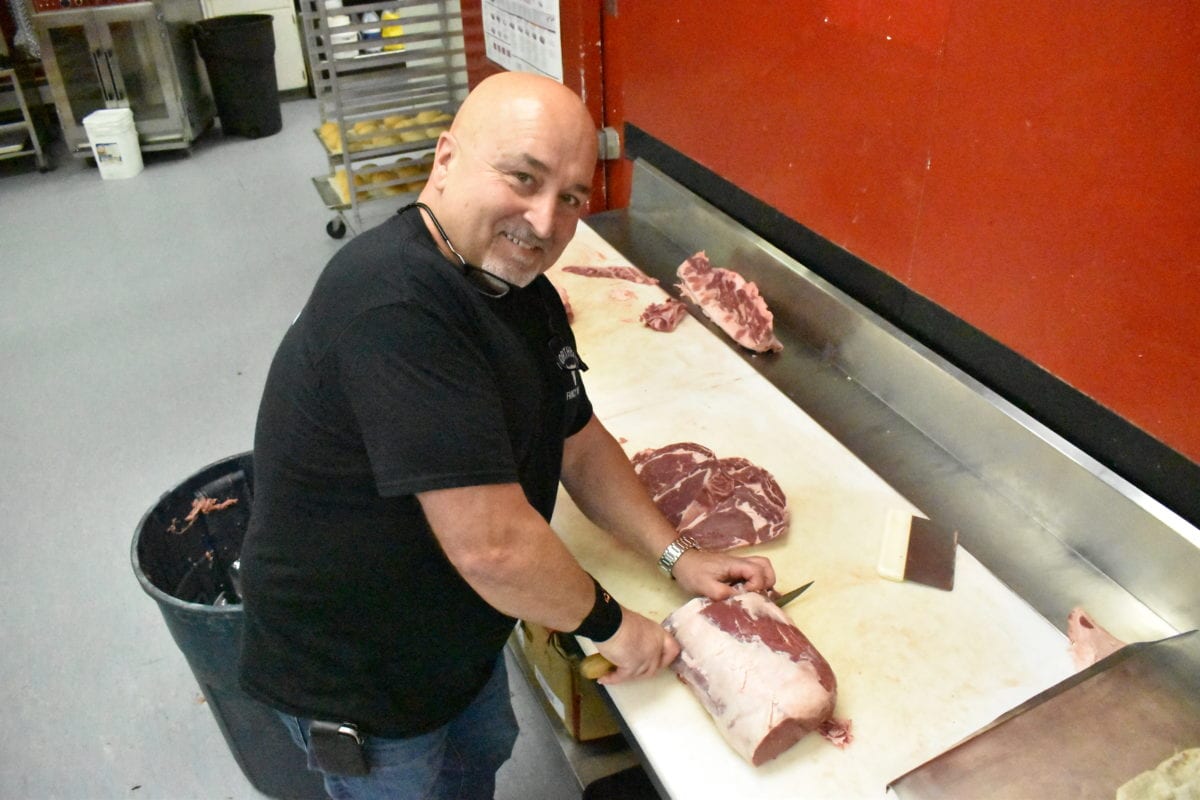Culinary historians might one day write about how Yellowknifers’ appetite for meat persisted even during the Covid-19 pandemic of 2020, and possibly beyond.
At least that’s what the last six months have shown the owner of Northern Fancy Meats, Terry Greene, who said business has been steady ever since Covid arrived in the NWT in March.
“When the pandemic started we got really busy. People were stocking up. It didn’t slow the business down one bit,” said Greene.

Blair McBride/NNSL photo
Unlike most other businesses in Canada, the store didn’t have to lay anyone off, didn’t apply for any territorial or federal Covid assistance and didn’t close its doors even for one day.
In fact, the high demand during the spring gave the Woolgar Avenue meat shop a sales boost of about 15 per cent, he said.
“All the restaurants were closed. People were eating more at home,” Greene said, explaining his bump in business.
And of all the meat items the store sells, chicken wings were by far the most popular.
“I’ve never sold so many chicken wings. We went from (selling) 40 pounds of chicken wings a week to four times that. No bars were open so chicken wing night was at home.”
But, while the past six months have been strong for Northern Fancy Meats’ bottom line, the shop was just as affected by pandemic-related supply chain disruptions as most other businesses.
After Covid outbreaks in April at the Cargill meat processing plant in Alberta, Greene said he wasn’t receiving any product.
“There were two weeks in there that were really tough. If you don’t have nothing to sell, you got no business, right? There was a lot of stuff you couldn’t get, and if you could get it, it was expensive.”
Overnight, the price for many cuts of beef rose from $15 per kilogram to $25 per kilogram.
That slump was short-lived. After workers in the Cargill plant went through their 14 days of quarantine, supply shipments resumed their regular frequency, Greene said.
Overall, the shop’s day-to-day operations haven’t been significantly affected since March, other than staff doing more disinfecting tasks.
“The sanitizing… you always did anyway in the meat business, we just do it more often (now).”
When Greene considers the wider context in Yellowknife of other businesses that deal with customers on a daily basis, he feels lucky that his shop avoided the worst of the pandemic’s effects.
“I feel bad for the restaurant guys and the bar guys,” he said. “Even now, it’s got to be tough on them. You wish you can help them out. That’s all you can do.”

